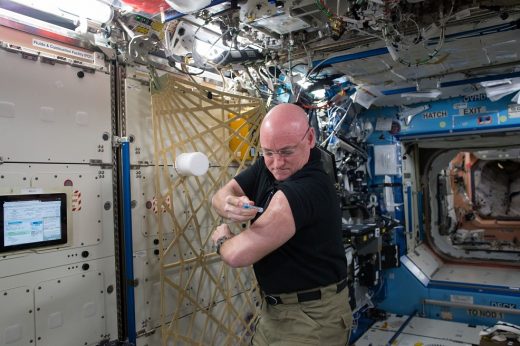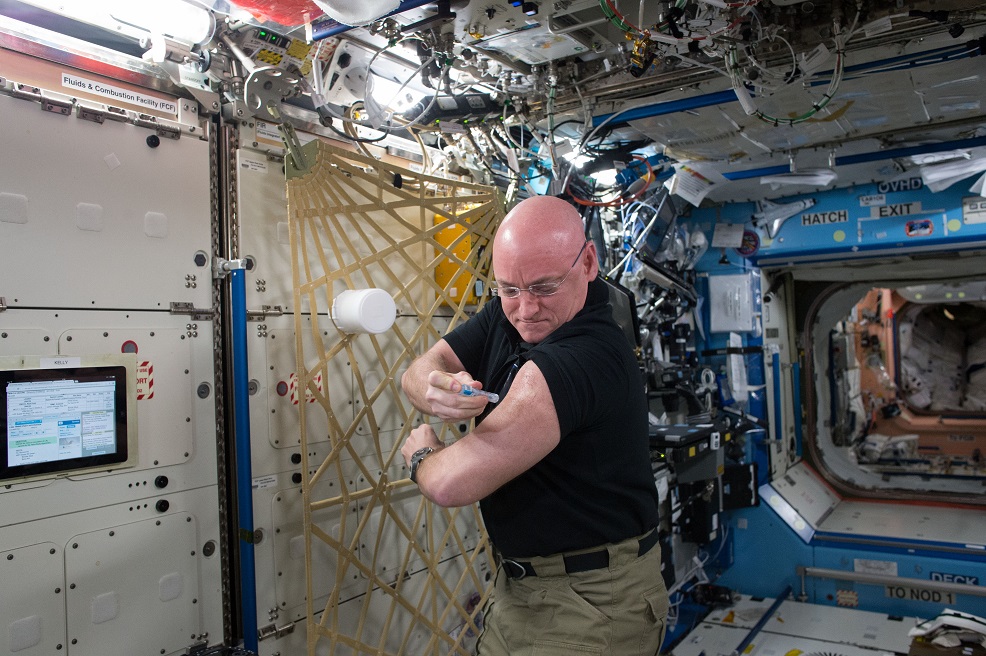Scientists might know why astronauts develop health problems in space
People are more likely to develop health issues with extended time in space, such as cardiovascular and sleep disruptions. But why? Scientists might have an idea. They’ve published research indicating that mitochondria, the energy-producing “powerhouses” of cells, may play a key role. Mice with eye and liver problems in studies often had mitochondrial dysfunctions, while NASA astronaut Scott Kelly (above) might have faced immune system changes aboard the International Space Station in 2015 as a result of mitochondrial problems.
Bodily fluid samples from many other astronauts also supported claims that mitochondrial activity changed while in space.
The potential breakthrough came in part thanks to NASA’s open-source GeneLab platform. The tool aggregates large volumes of space biology data from around the world, including cell info as well as DNA, RNA and proteins.
The findings reinforce concerns that astronauts could face significant health challenges going forward, particularly for trips to the Moon and Mars. The discovery could be crucial to overcoming those problems, however. Lead study author Afshin Beheshti told NASA this could lead to “countermeasures and drugs” that keep people living well in space for long periods. It may be safe to spend months in orbit or deep space trips, then — you may just need to take precautions until you’re within the relative safety of Earth.
(21)




